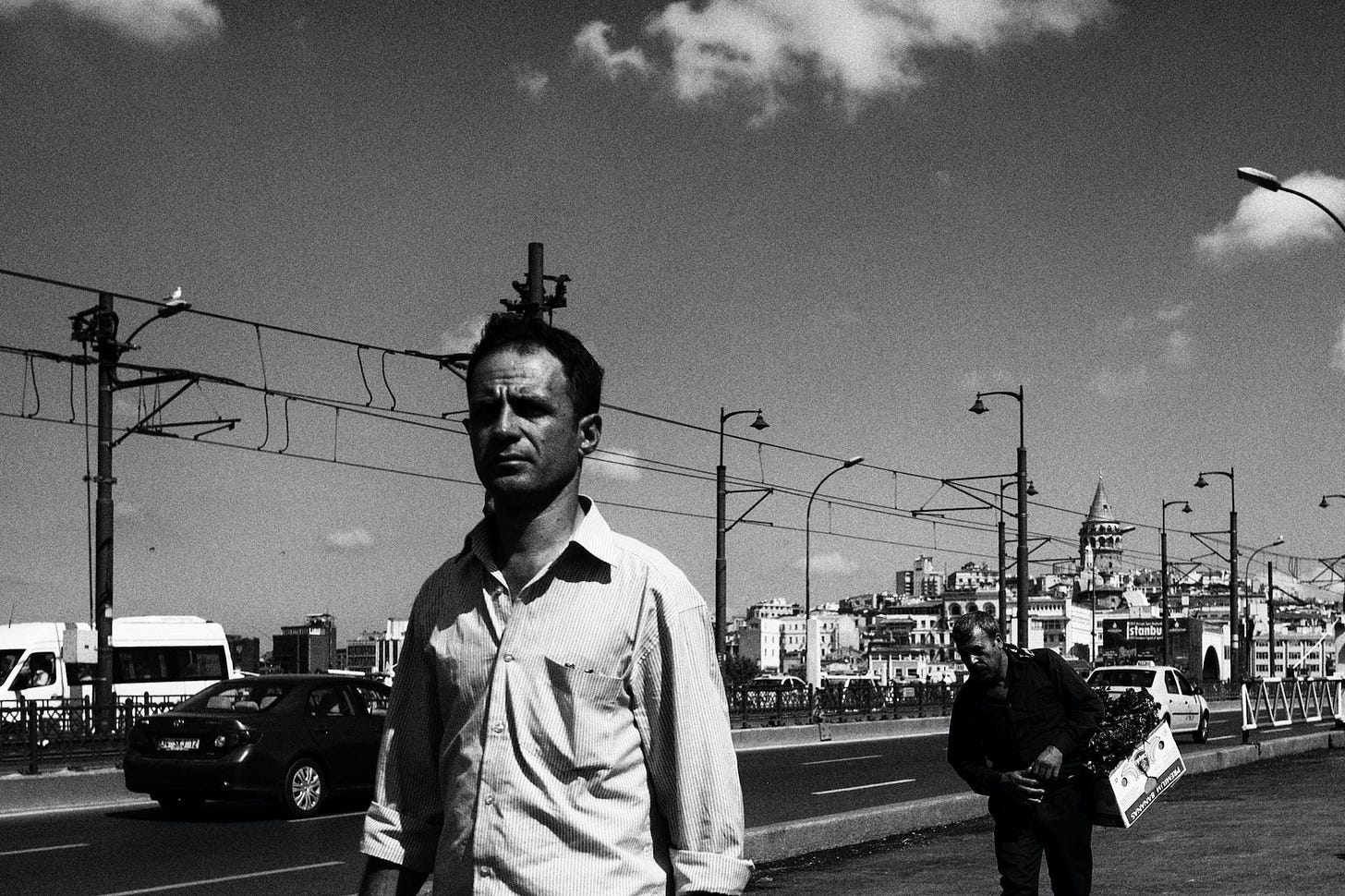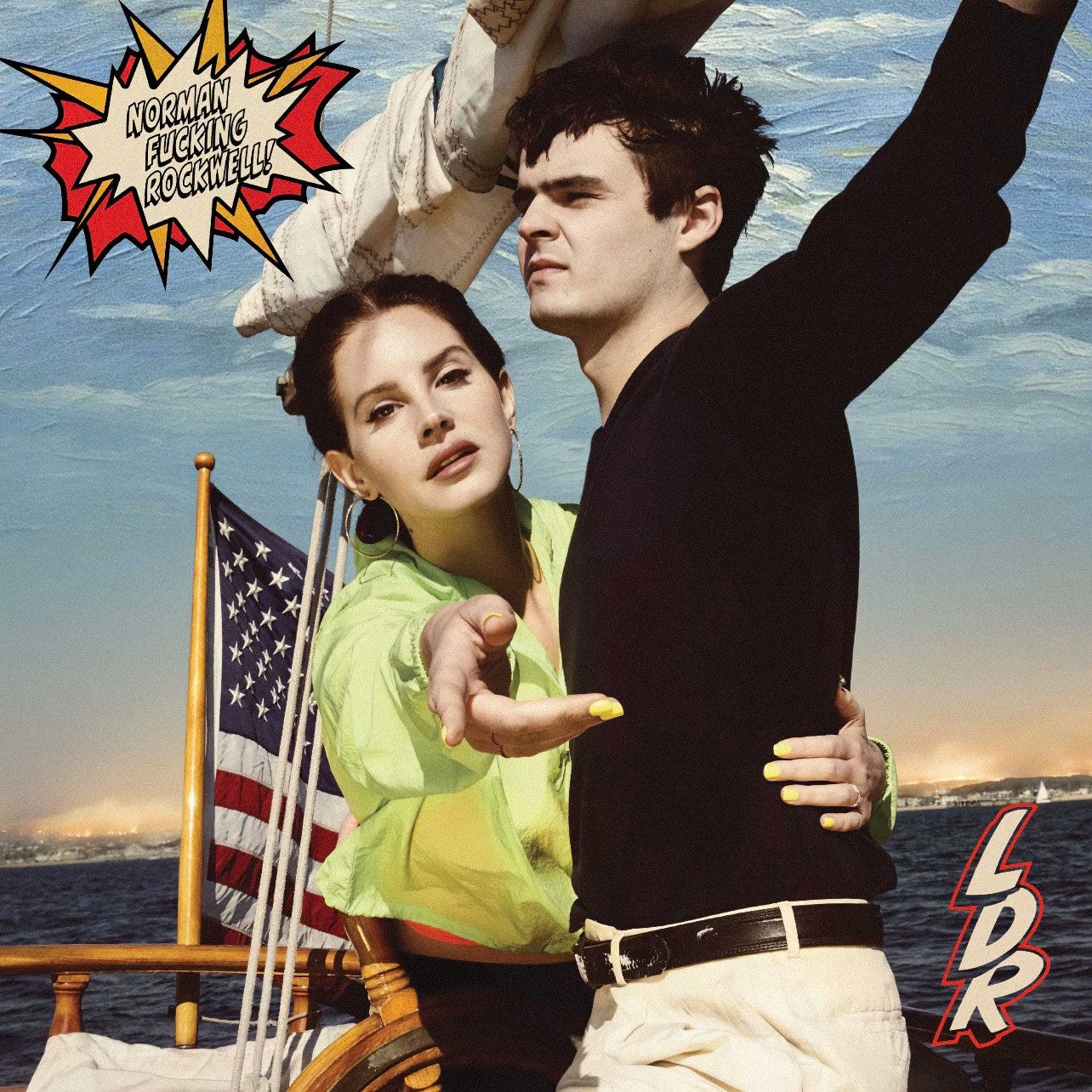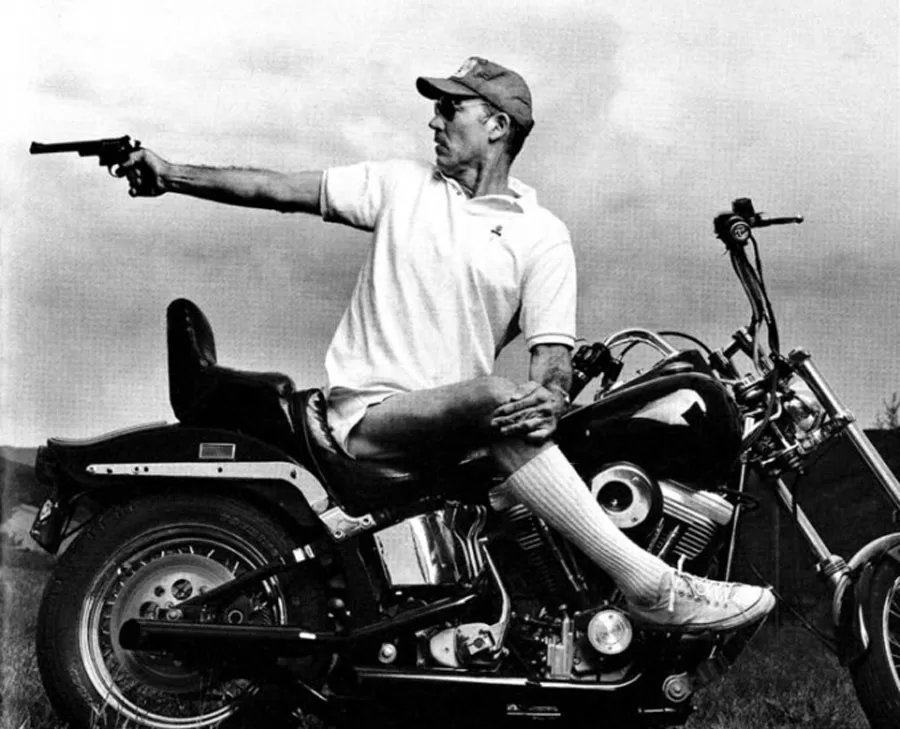“Once you get the message, hang up the phone.”
Alan Watts coined as he reminded his urban hippies to live out the Christ in their hearts, instead of becoming the LSD-controlled dissidents foiled by the CIA.
Beatniks in common conservative culture are almost always known as Berkeley-born Birkenstock hippies, degenerate homosexuals, and varying pseudo-intellectual Marxists. However, the true heart of the Beat — not the derogatorily Russian niks — has nothing to do with these cosmopolitan cretins.
The real Beats, the Blood of Kerouac and the Son of Watts, were men that returned from their witness of the Death of the West. Having participated in the ruinous bloodshed of their own ancestors and the destruction of a millennium of their own civilization, they were broken. Why? They asked in all of those haunting nights of cold sweats and tremors of the heart, why? Why did they fight? Why was it brother against brother, father against son in such a horrific war of self-annihilation?

They didn’t know why, but a ravenous hole was within them; they had no option to run lest their own memories and the soothsaying wisdom of the dying world force them into a 44-magnum retirement. No white picket fences or GE refrigerators could ease the bewilderment of principled men trapped in a West that had no awareness or will to its future.
They were “beat. . .”
Move or die.
What is often called “Beat” literature varies in quality; some is schizophrenic nonsense, some is divinely visionary, but the 101 for true “Beat” Literature is Dharma Bums. Jack Kerouac wrote this hidden gem as a fluid novel and it becomes a jovial convergence of Eastern spiritualism with Western realism. Blending both worlds gives us a foot on two different soils — one oriented intimately to the spirit and the other to the soul. Kerouac was great, but good literature from interesting figures is not the point. What is most compelling and critical for us trapped in the modern world is to understand that Jack, like many others, was the manifestation of the purest “Beat” spirit — a constant and recurring will to wander.
Century after century:
Whether they are the Wandervogels, the Beats, American Country “Outlaws,” or Lana Del Rey,
The Wayfarer is eternal.
Riding on a steel horse.
Born too late.
In the heat of hell.
To the voice we hate.
Of leathered scars
And ice cold mates.
I’ll keep going,
Until my fate.
— Klaus
Hunter S. Thompson’s career can be defined as nothing other than “Beat.” His ability to survive horse-killing drug use while writing for major publications and tracking the Nixon campaign perfectly encapsulates the absurd prowess and philosophical dynamite flowing through the veins of these troubadours.
Altogether, with American motorcycles, shootouts, drugs, and liberty. Thompson was the epitome of the right-wing hippie. He cared less for political speak and more for personal liberation. Sometimes that comes in the form of LSD and sometimes that comes in the form of a .44 magnum.
Maybe one of Hunter’s greatest quotes characterizing him as a Beat is
The Edge… There is no honest way to explain it because the only people who really know where it is are the ones who have gone over.
In the heart of the Beat is not only a will to wander but a necessity for authenticity. No fame, no money, no glory could ever separate Townes Van Zandt’s love for music. If anything, he noticed that the pursuit of those vainglories only poisoned the message and purity of his art. He’d rather drink himself to death than sell out his soul. He understood the fickle worthlessness of not only those pleasures but also even his own life as he witnessed the world die.
All that mattered was his mark, living his place in the world, as he chose. Despite his tragic end, he had no regrets with him.
If you want a taste of freedom with the fleeting daydreams of sunshine, take a listen to “Tecumseh Valley.” Our own little Caroline, America’s heart and beating soul. Here in America our ancestors had the burning sun as their eternal horizon, across bountiful fields and infinite hope and potential. We reaped it; we danced amongst the poppies while our fathers labored on to give us a dream-esque future.
But as the sun set and our old man died, that corruption set in; the darkness, the entrapment of modernity, the poison in our soil corrupted our soul and society.
All the drugs, all the sex, all the violence are nothing more than a vain attempt to feel sensations down in our nihilistic hearts. Only to find once more, ourselves alone, dying, farewell to a world we dreamed of but could never know.
She turned to whorin’ out on the streets
With all the lust inside her
And it was many a man, returned again
To lay himself beside her
They found her down beneath the stairs
That led to Gypsy Sally’s
In her hand when she died
Was a note that cried
Fare Thee Well…
Tecumseh Valley…
In a melancholic and empathetic way, Townes was always able to depict the struggle, the effects of the Industrial Revolution on the inverted working class. The Beat is not a dreamer, while seeing the dream clearly.
Within their lives, they discovered profundity and simplicity in their attunement with life, a nostalgic nomadism of the soul, and an undeniable penchant for fantasy, with a taste only for endless roaming and space. Total freedom lies within hand. But this freedom requires also a solitary path, for oneself, for one’s own enlightenment.
This incurs our most coveted contemporary Beat, Lana Del Rey.
Who are you? Are you in touch with your darkest fantasies? Have you created a life for yourself where you can experience them? I am fucking crazy, but I am free.
Lana is the closest we have to the modern-day Beat within popular culture. With a radical lust for life, she encapsulates a wild desire for absolute freedom with a total allegiance to her own creative endeavors. She forged her own path, never betraying her art for wealth or fame. She simply could never be controlled. This is what makes her music so raw and beautiful.
It is pure in its lucid aesthetics, and Lana runs wild, exploring all of the genres and themes that touch her heart and inspire her to create music. Americana is the only way to describe it. Quoting a good mutual who sums it up precisely,
Lana Del Rey is the most important singer of the decade for one reason: she is a real human. Most top 40 singers are deepfakes, spiritually and now literally. It’s all written by soulless committees of marketers and PR people. This is why Lana must be defended at all costs.
— Pine Baron
Her album Norman Fucking Rockwell is the most important album for the Beat of the 21st century. Her crescendo with “The Greatest” is a call-out to men to save a collapsing West that can only be picked up and reorganized by the true aristocratic yet rugged man who can reestablish order and move forward to an America that can exist. Norman Fucking Rockwell is an obituary to America.

She recognizes she was able to experience the peak of it all, but also everyone of that age could choose, really choose, what they wanted, including the negation of the spirit. You could be rock’n’roll or be punk and live honestly as a rebel. Now everything is ironic, sapped, there’s no real choice because nothing is real. “I want shit to feel just like it used to, when, baby, I was doing nothing the most of all.” This makes sense when you realize we aren’t even “doing nothing” today; we are on low-level stimulation on some tech giants’ marketing platform.
Lana Del Rey is the feminine, nurturing spirit for the Beat. Almost all who I have referenced have intentionally taken their lives, or slowly drank themselves to death.
A siren, as we wander for decades, aimlessly, feeling lost and boundless, misdirected yet free, we can feel for a moment the euphoric campfire of home. She calls to us in our dark nights accompanied by our shadows. Before we take another sip from the whiskey river of lathe, or put lead in our mouths, we can feel that warmth; Lana will sing your way into a well-rested slumber.
Continuing on the siren archetype, she offers the Beats salvation and redemption for the world they’ve inherited. That’s what Norman Fucking Rockwell is about. She writes,
And who I’ve been is with you on these beaches
Your Venice bitch, your die-hard, your weakness
Maybe I could save you from your sins
Understanding the pain of the Western man and offering comfort, true comfort. She continues in the album with the lyrics,
You don’t ever have to be stronger than you really are
When you’re lying in my arms, and, honey
You don’t ever have to act cooler than you think you should
You’re brighter than the brightest stars
While I ponder any form of how to conclude this, I am a Beat. I am a right-wing hippie. I care not for the politic that is squabbled over on a daily basis. I rarely know what is being discussed on the timeline of Twitter. I have made lifelong friends. I care for liberty, romance; I care for brotherhood, friendship, and authenticity,
And there are many like me, throughout time; we are beyond tradition, and we are right-wing. We are the spiritual dynamo that shifts the Right’s divine authority to creative and explosive alterations.
The Beat is not an idealist; rather the Beat sees the ideal, but understands what needs to be done to arrive at that utopia. Who amongst us has the will to power to deliver Arcadia?
Nostalgia Inc.







